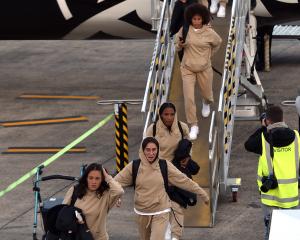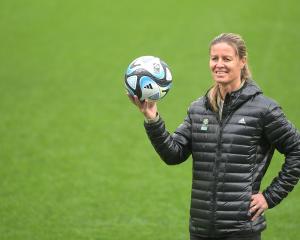
The Fifa Women’s World Cup kicks off in 36 days in New Zealand and Australia — with six games played in Dunedin — and it is set to be the biggest yet.
Fifa announced last week that 1.03million tickets had been sold already, surpassing sales from the 2019 World Cup in France, and revealed a massive remuneration boost, with each player being paid $49,000 and the winning team receiving $447,000 for the first time.

She met Minister for Sport and Recreation Grant Robertson in Wellington yesterday for a celebration of women’s football, and to discuss ticket sales, legacy programmes and getting more participation from Māori, Pasifika and migrant communities in "this beautiful country".
"Women’s football becoming part of the conversation in a very positive way is something we should all be proud of," Samoura said.
"We need [more women] coming forward, and asking questions, and playing their part in promoting the event.
"Talking about gender equalities through football is something that we don’t take lightly at Fifa and we are very thankful for everything you are doing, including in Dunedin.
"But we still need more tickets to be sold for you to support us in the coming days and weeks."
The rise of women’s football has been significant in recent years, and preparations for the World Cup reflected that.
New Zealand is on track to "receive the world", with the Government investing nearly $30 million into upgrading facilities.
"We want to ensure all the host cities will be ready.
"Many, many parents will definitely come forward because their girls and daughters ... can identify themselves with their role models playing on the pitch, and they want to be embracing football as their career."
Hosting the World Cup in a "big sporting nation" like New Zealand was an opportunity to use the platform for change, and raise awareness, on social issues, she said.
Bridging the pay gap between the men’s and women’s World Cup remuneration was a "great achievement", and Samoura was proud to work alongside hard-working women advocating for the sport, including New Zealand Football president Johanna Wood.
"Football is a catalyst — we want to take women’s football to the next level."











